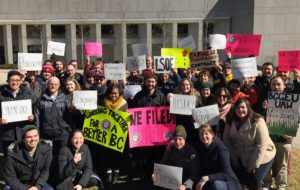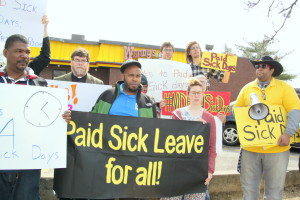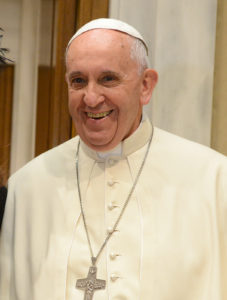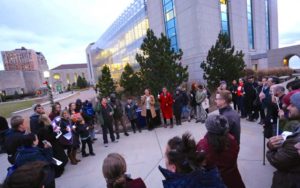The Working Catholic
by Bill Droel
Children in a generally peaceful home can acquire virtue more readily than those in a disruptive home—though moral growth or sin are possible in both situations. The same is true of a city. A vigorous city makes holiness more likely; a chaotic and corrupt city requires extraordinary individual moral striving. Again, sinners can be found everywhere, as can the saintly.
Urban holiness starts with its architecture, zoning and construction. A city’s shape can enhance or limit the moral lives of its inhabitants, explains Wade Graham in Dream Cities: Seven Urban Ideas (Harper Collins, 2016). But bulldozers, construction cranes and surveyors cannot guarantee moral outcomes. It cannot be assumed that salvation comes by bricks alone. It is a mistake, says Graham, to simply put “faith in things to transform our souls and spirits.”
For example, Graham explains the invention some years ago of the concept of blight. The remedy for which was urban renewal. These projects, however, addressed poverty and deterioration entirely “in terms of buildings (the hardware), not in terms of people, jobs, wages and the economy (the software).”
Today, there are those who see the city’s response to poverty in the same terms they use for prosperity. They propose more hardware or more money, maybe for policing or for education. Last week, for example, a plan was floated to rehab certain strip malls as an antidote to Chicago’s gang violence. A reasonable argument is made to increase funding for city schools. But again, new facilities and more computers do not in isolation improve student test scores or lower the dropout rate. Detached from the software side of life, hardware solutions are distractions—at least to some degree.
Much of what makes a city a good place to live has less to do with money and buildings than it does with the person-to-person relationships that are formed. Cities provide unique ways of relating to others, to the world and to God, says Pope Francis. Presuming, that is, our dedication to “a connective network” through which “people share a common imagination and dreams.” Connecting is not automatic. Segregation, violence, corruption and neglect are, as Pope Francis is aware, the default positions of urban life. Urban holiness requires, in his terminology, “a culture of encounter,” which no longer happens randomly.
Just as in the old fable of the “Town Mouse and the Country Mouse,” there are people today who assert the moral superiority of nature over the city. The city is for survival, they say. It is for making money. Nature, the fable continues, is for companionship and contemplation. A spiritual life, this fable says, requires a retreat from sidewalks and alleys to meadows and sunsets.
This fable is wrong. So too is the disparaging prattle about Chicago currently emanating from our White House. Chicago is great with its magnificent architecture and fine museums and many tourist venues. A city’s greatness is not its hardware, though. No, a city’s greatness arises from its hospitality to immigrants, to refugees seeking a new life, to students and workers, to the elderly and dispossessed, to young parents and to the poor. From an unlikely mix of urban characters come poets, taxi drivers, teachers and citizens. Cities are incubators and repositories of culture and civilization. The city is the place where women and men come to make their way in the world and where they encounter others, thereby creating something greater than the sum of the parts.
Chicago is great—and Philadelphia, St. Paul, Austin, Buffalo and your city. Great that is, to the extent that each of us takes responsibility to nurture relationships and give meaning to the next generation. A great city emerges when we urban humanists make a practice of meeting people one-by-one; when we treat a lunch conversation or an office appointment as sacred; when another person’s story is the text for our spiritual reflection; when we abandon our opinionated generalities and instead make a premium of each privileged encounter.
Noble humanity flourishes in a city. In fact, because culture is densely concentrated there, urban spirituality is quite rich.
Go Black Hawks.
Droel edits INITIATIVES (PO Box 291102, Chicago, IL 60629), a newsletter about faith and work.






